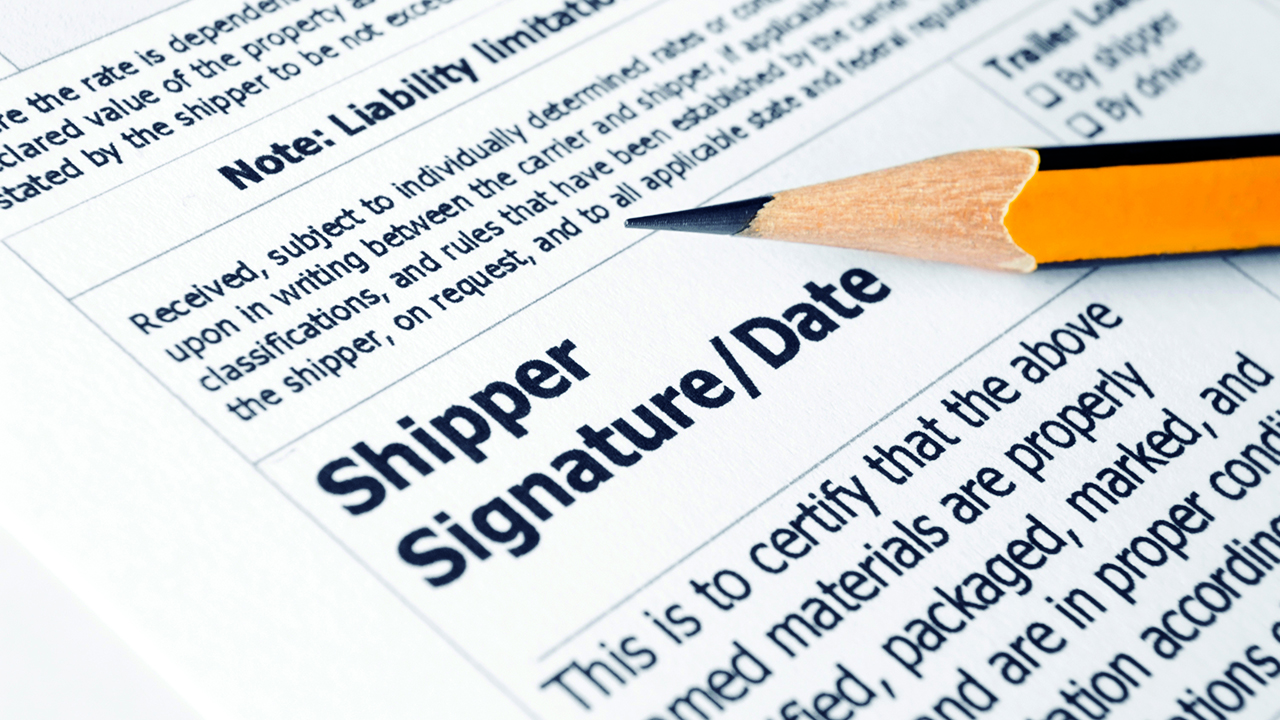Have you recently been asked by your shipping line to replace standard wording of the bill of lading with new terminology? While the change may seem unimportant, the reality differs – says FIDI’s Business Intelligence Manager, Marie-Pascale Frix
Recently, we have been informed by several FIDI Affiliates that some shipping lines are enforcing a new mandatory wording in the bill of lading (BL). Instead of the standard ‘C/O’, the term ‘Jointly and severally with’ is being requested for the field ‘Consignee’.
| Standard wording | Revised wording |
| Name of owner – C/O (care of) Name of the agent | Name of owner – JOINTLY AND SEVERALLY WITH Name of the agent |
The request raises several questions:
- Is this a new trend?
- What does this clause imply?
- Are there any legal and financial implications for removal companies?
- What about removal companies acting as destination agent or as booker of the freight service?
Puzzled by this situation, we carried out some research with the assistance of FIDI experts – the PCG team – and this shed new light on the bill of lading.
- The term ‘jointly and severally with’ in the ‘consignee’ field of the BL is indeed being requested in an ad hoc way by some shipping lines (MSC worldwide and Hapag Lloyd, Zim and CMA CGM in the US, for example).
- This requirement emerged in some countries a few years ago (for example, Canada, Italy and Colombia). While it is currently being enforced in countries such as Sweden and Hong Kong, it is apparently unheard of in other countries – such as Australia, Israel or the Netherlands.
- The clause ‘jointly and severally with’ has significant legal implications for the companies bound under such a clause. As defined in the Osborne Law Dictionary, it is the obligation entered into by two or more persons, so that each is liable severally, and all liable jointly, and a creditor or obligee may sue one or more severally, or all jointly, according to their own judgment.
While you could argue that the consignee is the owner of the shipment, in practice, the removal company is often listed as consignee for the sake of the shipment clearance process. Being named as the consignee on the bill of lading comes with the risk and responsibility of being held accountable for many issues such as non-clearance of cargo, late clearance and claims.

Through this new enforced wording for the ‘consignee’, the mover can consequently be held liable if the owner of the goods fails to comply with their obligations towards the shipping line (for example, unpaid demurrage charges or abandoned shipments).
Moving companies should also be aware that a ‘joint and several’ liability clause is already part of the terms and conditions for most BLs, based on widely worded ‘merchant’ clauses that hold parties to the BL jointly and severally liable towards the carrier.
You may believe that this will never happen to you – but this is dangerous. FIDI Affiliate Streff is currently facing a claim for compensation by the shipping line with a financial risk of approximately €70,000 (see panel, ‘An unforeseen risk’)
It should be noted that the US Federal Maritime Commission (FMC) has recently launched an investigation on the application of this liability clause by carriers. As per the FMC, the concerns they received indicate that carriers may be enforcing the terms of the bill of lading (including, without limitation, collection of freight rates and charges, equipment charges, demurrage and detention charges) against entities who are not party to, and have not agreed to be bound by the bill of lading. The FMC has been advised that carriers are seeking payment based on the terms and conditions of the bill of lading.
While it is hoped that the outcome of the FMC investigation will help resolve current practices, here are some guidelines to follow in the meantime:
Guidelines
- When selecting your shipping line, be aware of the liability clauses – look for the ‘Jointly and Severally’ liability clause, not only within the ‘merchant’ clause but also in the small print.
- Analyse the potential financial risks for your company based on the number of shipments shipped annually.
- Make a business decision to continue with or boycott the shipping lines imposing these liability clauses.
- Review and amend (if necessary) your liability insurance and general liability insurance clauses.
- Whenever possible make sure your company does not appear on the BL at all.
An unforeseen risk
By Max Chorus, Streff
While most of us working in the international moving business have encountered container ships with lost or damaged cargo and faced General Average risk, such a risk is generally covered by the insurance.
With more than 26 years of experience as a CEO in international relocation, l learned that there are still surprises in maritime law that may not be noticed until a claim for compensation is suddenly made. Here is our story, which we are sharing to help fellow partners avoid similar situations.
A NGO in Europe (country ‘A’) with a partner NGO in Africa (country ‘B’) receives a donation of office furniture from a major international corporation for humanitarian reasons.
The NGO at origin takes over the loading of the furniture on its own and organises all activities on site of destination with the partner-NGO there. However, this donation of furniture is not made directly by the actual owner of the furniture but is handled by the facility management company of the multinational. The facility management company then also pays the costs for the provision and transport of two 40-foot containers to port at destination. The sea transport is carried out by our company
and the containers are unloaded at destination port in accordance with the signed contract. The service for which we were contracted was thus completed. The NGO at destination was responsible for the import customs clearance, transport and for unloading the containers.
Time passes by and months later, unbelievably, we were taken to court by the shipping line for that specific shipment.
The shipment had in fact never been customs-cleared by the local NGO and our company was being asked to pay for all costs incurred.
After we became aware of the situation, we contacted both NGOs involved with no results. We then tried to get the containers released ourselves. However, since we did not own the items, we could not achieve this. The containers were ultimately confiscated by the customs authorities, the contents disposed of and the containers returned to the shipping line.
The shipping line was now looking for someone to be held responsible for the costs incurred. As both NGOs had, in the meantime, stopped their activities, the shipping line declared that our company was liable for all costs incurred based on the following reasoning:
- The shipper, the consignee and also the forwarder, who made the booking and/or the booking order to port at destination, are jointly and severally liable for the payment of all costs (demurrage and detention) incurred as a result of the situation.
- The clauses and conditions of the bill of lading state that the merchant is liable for all costs. The term merchant refers to ‘the shipper, the right holder, the consignee, the consignee of the goods, any person holding or entitled to hold the goods as consignee or endorser of this bill of lading, or any person acting on their behalf’.
- Specific clauses of the bill of lading referring to the consignee’s liabilities for such extra charges.
Seven years on, and this case is about to be presented to court. Our company is facing around €70,000 in liability costs or charges, while we are not responsible for what happened nor were we the owners of the goods.
If it is really the case that any party somehow involved in a shipment can be held jointly and severally liable, it must be assumed that the shipping lines will first turn to the companies most likely/able to pay, and not to private individuals.
It is difficult to say to what extent a company involved in the process can defend itself against the general responsibility to the shipping line that may arise from the bill of lading.
These maritime clauses in the contracts cannot be changed individually.
Probably the only possibility of protection for the company is not to accept any orders where it has not organised the door-to-door activities itself.
We will share the court’s final decision on this with FIDI Focus.

